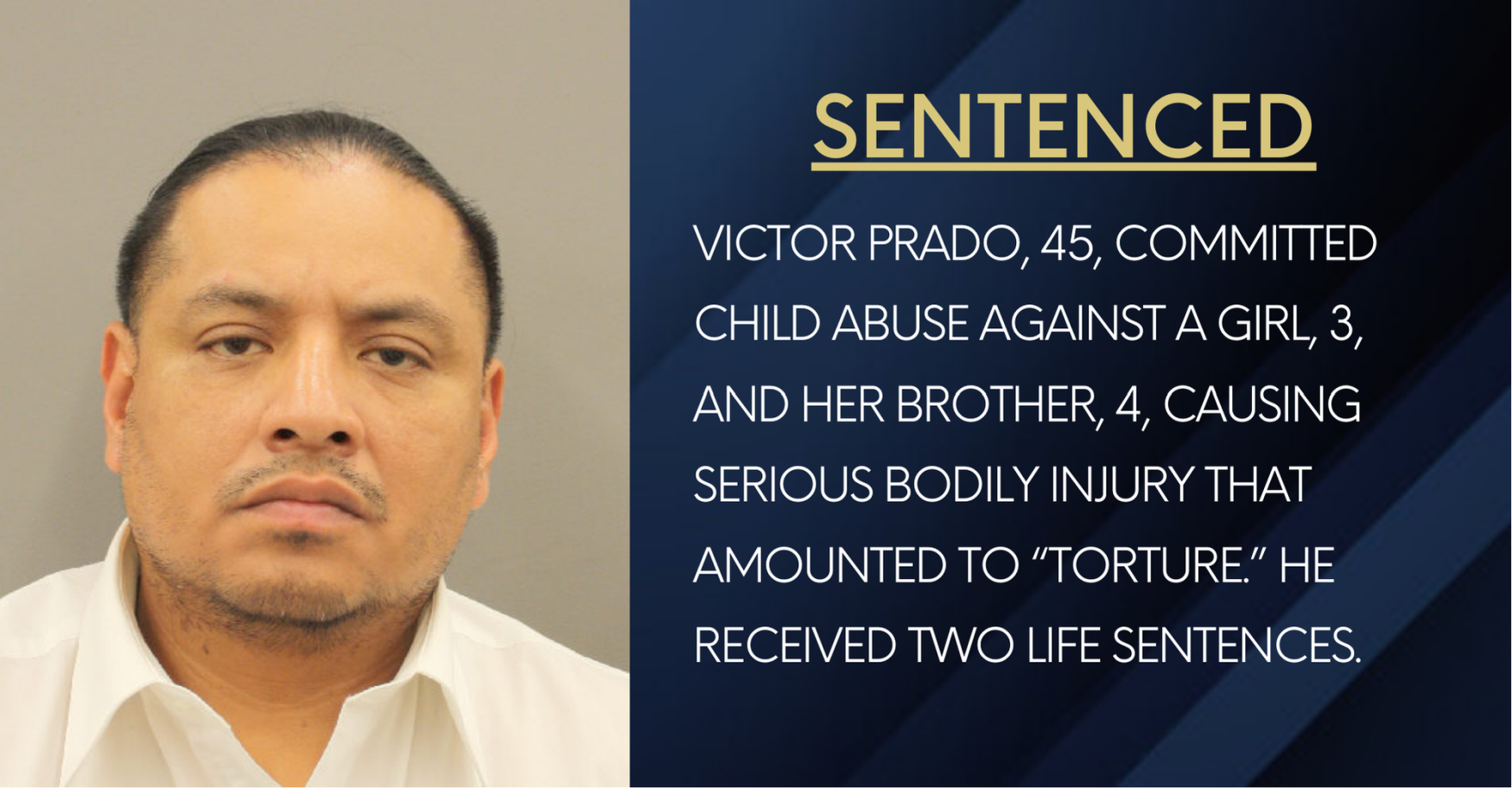Man tortured and starved girlfriend’s children because he ‘didn’t want them to have to poop’
The children had been subject to malnourishment, restrainment with zip ties and beatings before their neglect was reported to CPS

A Houston man has been sentenced to serve two life terms in prison this week for severely abusing two small children over the course of two years, including a multitude of horrific acts such as withholding food because “it makes the children have to poop.”
Victor Prado, 45, has been convicted after being accused of beating two small children, restraining them with zip ties, and withholding food from them in 2019 and 2020, Harris County District Attorney Kim Ogg said in a news release on Prado’s sentencing.
“Our children are our most valuable resource and our most vulnerable victims,” Ogg said. “This man intentionally tortured two little kids, and now, hopefully, he will spend the rest of his life in prison.”
Prado worked in a southwest Houston commercial office building as the owner of a moving company.
He was dating a woman who was the mother to a three-year-old and a four-year-old, and Prado let them live in the building.
A witness told police that the building was for commercial use and was not suited for children, as it was not equipped with a kitchen or shower.
The witness, who filed a complaint with child protective services earlier that month, said she had previously seen the couple leaving the office building at night without the children and would also sometimes hear the victims screaming at night, according to an affidavit obtained by Law & Crime.
The witness “said that on one particular occasion, the (Prado and the mother) left music blaring inside the office, and she said that (the children) were left inside and tied up,” the affidavit reportedly stated.
The witness, who noticed that the children looked like they were being “starved”, said she spoke to Prado about why he had not been feeding the young children, to which he allegedly replied because “it makes the children have to poop,” the affidavit said.
The now-convicted man was supposed to watch these children while their mother went to work. However, in May 2020, the two children were removed from their mother’s custody by child protective services while they were investigating allegations about the children and took them to Texas Children’s Hospital.

At a trial later on that lasted six days, jurors heard evidence that the young four-year-old boy was severely malnourished and weighed only 32 pounds, with medical personnel also testifying that the young boy “looked like a skeleton.”
The boy had multiple broken bones in various stages of healing and permanent brain-tissue loss, the district attorney’s office said.
The young girl also had allegedly been beaten, according to trial witnesses and had several blunt-force trauma injuries, including broken ribs, severe intestinal injury, as well as bed sores, the authorities said.
Both the three and four-year-old had a broken pelvis that the district attorney’s office said was “an injury that is typically seen only in children who are in car crashes.”
On top of all of this horrific detail, the children also had ligature marks on their hands, wrists, ankles and feet that left permanent scars.
Doctors who examined the children had concluded that their injuries were classified as “child torture.”
Prado was subsequently convicted on two counts of injury to a child causing serious bodily injury, a first-degree felony.
“At a time in their lives when they should have been shown love and affection, these two children were shown violence and fear – they’ve lost their innocence,” said the assistant district attorney Ashlea Sheridan, who is a chief in the DA’s Juvenile Division and prosecuted Prado.
“They will have to live the rest of their lives with the effects of what this man did to them, and so should he.”
Danielle Oxford, a chief in the DA’s Crimes Against Children Division, also prosecuted Prado.
Prado’s two life sentences will run concurrently and he must serve at least 30 years in prison before he will be eligible for parole.
